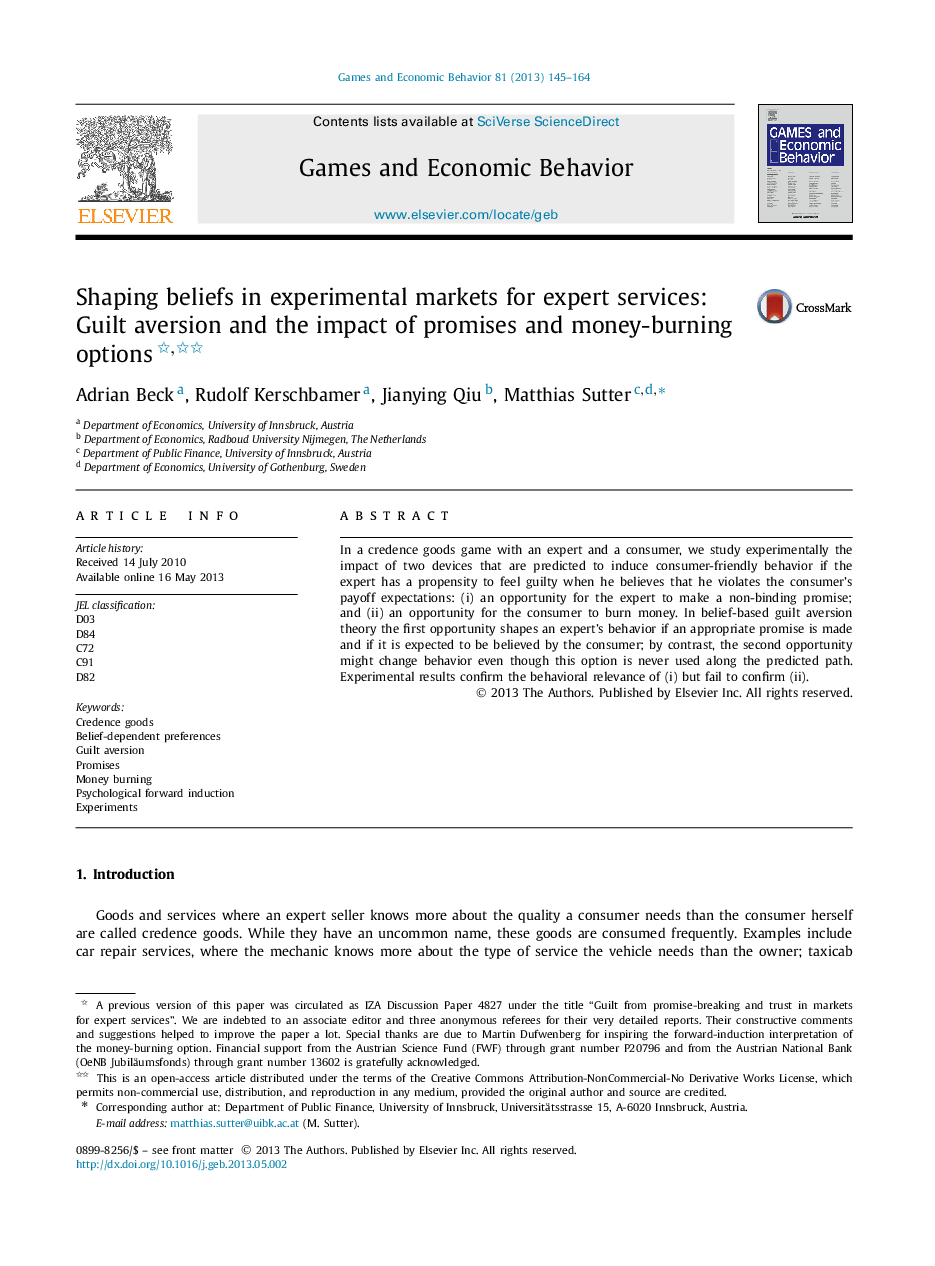| Article ID | Journal | Published Year | Pages | File Type |
|---|---|---|---|---|
| 5071943 | Games and Economic Behavior | 2013 | 20 Pages |
Abstract
In a credence goods game with an expert and a consumer, we study experimentally the impact of two devices that are predicted to induce consumer-friendly behavior if the expert has a propensity to feel guilty when he believes that he violates the consumerʼs payoff expectations: (i) an opportunity for the expert to make a non-binding promise; and (ii) an opportunity for the consumer to burn money. In belief-based guilt aversion theory the first opportunity shapes an expertʼs behavior if an appropriate promise is made and if it is expected to be believed by the consumer; by contrast, the second opportunity might change behavior even though this option is never used along the predicted path. Experimental results confirm the behavioral relevance of (i) but fail to confirm (ii).
Related Topics
Social Sciences and Humanities
Economics, Econometrics and Finance
Economics and Econometrics
Authors
Adrian Beck, Rudolf Kerschbamer, Jianying Qiu, Matthias Sutter,
